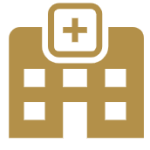Alcoholism Treatment

12 Minutes
CONTENTS
Did you know that around 14 million adults have Alcohol Use Disorder in the US? The shocking effects of alcohol abuse result in hundreds and thousands of deaths every year. Alcohol abuse is a brain disorder experienced by people with chronic alcohol addiction. It is very common and it is not something people want to have.
Alcohol Use Disorder may result due to genetic influence or environmental factors. But the question is, how do you stop it? How do you treat alcoholism? Does going into alcohol rehab help in any way? Remember that alcoholics with mild alcoholism do not have to go through alcohol rehab. However, those who have a strong alcohol addiction will need to join support groups, take alcohol abuse treatment, and spend a good time recovering from alcoholic problems. What is alcohol addiction rehab? How do you treat alcohol abuse? Let’s discuss alcohol rehab and treatment for alcoholism in detail.

You may want to give up on addiction but once you have crossed the upper limit, there is hardly any way back! Thus, alcohol rehab facilities are a piece of good news for people who are looking for treatment options for alcoholism. But before knowing about an alcohol rehab facility, you should learn about alcohol addiction. What is alcohol addiction? First of all, it’s not ‘just an addiction’. Alcohol addiction affects the brain and in many cases can prove fatal. Plus, it is the deadly effects of alcohol on the liver and brain that make alcohol dependence a deadly addiction.
Besides, once alcohol intake is stopped, addicts, mostly heavy drinkers, experience unpleasant symptoms of withdrawal effects of alcohol. Such as:

Increased heartbeat/pulse rate

Insomnia
Sweating

Anxiety and irritability

Psychological signs like Hallucinations

Nausea and vomiting

Seizures and hand tremors in critical cases
The alcohol rehab facilities help alcoholics to deal with these withdrawal symptoms and prevent a recurrence.
Note: We know it’s not easy to quit an addiction but when it comes to choosing between life and death, the former must be prioritized.
Note that mild cases of alcoholism do not need treatment. But if you are a heavy drinker, you must choose among different alcoholism treatment programs to recover sooner. These rehab programs facilitate a person with all the things he/she will need. These rehab facilities have experts who will monitor your health throughout the day and help you become sober. Moreover, there are inpatient and outpatient facilities that have assigned counselors, therapists, doctors, and nurses to help you with recovery. Let’s now look at the main steps of the treatment process for alcoholism and the programs that help you deal with it.
It is not easy to give up that easily but it’s not impossible either! The treatment of alcoholism begins with detoxification and ends till you recover fully. Furthermore, some facilities also provide after-care therapy sessions to teach you how not to fall into the trap again. The alcohol abuse treatment is a step-by-step process leading to complete withdrawal from the alcohol addiction. No matter what alcoholism program you choose, you will have to complete all these steps before regaining your sobriety.
Following are the steps to treat alcohol dependence and abuse:
Assessment
The first step as soon as you enroll yourself into an alcohol rehab program is assessment or examination. In this step, your doctor, nurses, or therapist will assess the severity of your alcohol abuse. They will first take a detailed history regarding your present health and alcohol addiction. Your doctor may ask questions like ‘how long have you been drinking?’ ‘Why did you start drinking?’ Is there any other medical condition that you want me to know before proceeding forward?
Note: Make sure to answer correctly. This history-taking and assessment is the first step towards your treatment.
Your doctor will also run a check on your previous medical history. Further medical examinations and tests will be done after you answer all the questions with honesty. This will help your doctors learn the extent of alcoholism within your body. Moreover, the assessment step will also tell how long the treatment should last, what triggers your alcohol intake and how to help you with rehab and associated withdrawal effects.
Detoxification
This is the most crucial step in the whole treatment plan for alcohol rehab. Your further management of alcohol addiction depends solely on detoxification. The term ‘Detoxification’ simply means getting rid of alcohol and its toxic effects on the body. However, this does not mean if you complete this step, you are neat and clean and can go back home. NO! Note that detoxification only helps remove the physical effects of alcohol from the body. For the mental therapy and for you to not go back to drinking, you need to rehabilitate yourself. Besides, the withdrawal effects of detoxification may come back if you don’t complete the whole treatment. So, remember that detoxifying your body from the harmful and physical effects of alcohol is not the only solution. It’s the thoughts and mental attachment with alcohol that needs to go away too. And only after that will you be fully clean and sober.
Luxury Inpatient Addiction Treatment for Teens
Note: People who drop the treatment at detoxification are at higher risk of developing withdrawal symptoms and suffer through relapse than those who take the treatment plan to the end.
Rehabilitation
Rehab, short for rehabilitation, simply means you are going to be in a 24-hour monitoring program after all the physical effects of alcohol have disappeared from your body.
There are many rehab centers specifically dealing with withdrawal symptoms of alcohol. And the treatment plan may include:
- Support groups
- Group therapy sessions
- Inpatient and outpatient treatment
- Holistic treatment
- Medications
Whether you need medications or not depends on your condition. But rehabilitation mainly focuses on your mental health after leaving alcohol for good. In a rehab center, you will talk about your journey to a therapist or a group of people with similar experiences. Furthermore, your doctor and therapist will teach you new lessons on how to cope up with withdrawal symptoms and how to deal with everyday situations after rehab. Rehab programs mostly include a 12-step program teaching you to manage, adapt, and adjust according to situations without consuming alcohol. This usually takes weeks but may be prolonged for some people. Besides, you don’t necessarily have to stay in a hospital. You may gradually start going out, working, socializing, and hanging out with family or friends but all under an expert’s supervision until you recover fully.
Aftercare
This is the stage of healing from alcoholism and preventing relapse. After-care health departments work on providing you a healthy life to live. By the time you are under ‘after care’ for alcoholism, there will be no more alcohol in your body and mind. And this is the step when you have to apply all the learnings from rehabilitation to your life. You will rejoin work, school, and take part in house chores, or simply, go back to your mundane routine. But the lessons you learned will now have to be in action. Furthermore, you would be strong enough to deal with things on your own without any supervision. However, you will have to visit your therapist once a week or twice, depending on how well you cope up. But there won’t be any restrictions nor alcohol to lure you into the trap again.
There are a few things to remember during aftercare, since you will no more be monitored 24/7, you are mostly on your own:
- Avoid trigger points
- Keep yourself busy
- Focus on your set goals
- Take care of your health and well-being
- Change your circle if you think there is a bad influence around you.
Individual Behavioural Therapy
One of the most effective therapeutic approaches for treating alcoholism is cognitive-behavioral therapy. It’s a type of psychotherapy that focuses on bringing changes in negative behavior, thoughts, and emotions of an individual. CBT deals with mental health and helps prevent relapse in chronic alcoholics. Moreover, it’s not only an individual-based therapy and can be done both in individual as well as group setups. It’s a talk therapy between the therapist and the patient. The therapist first educates and then helps the patient confront the addiction and its effects. And later suggests the best treatment plan for alcohol abuse.
Note: CBT mostly takes 12 to 16 sessions depending on whether the person wants to practice more to change their thoughts and behavior.
Medications
Behavioral therapy is sometimes coupled with medications. These medications are prescribed either to treat addiction symptoms or after detox to treat withdrawal effects. However, not all the patients who opt for the alcoholism treatment program need to be on medications. Some may show improvement with other therapeutic measures.
Following are the FDA approved drugs for Medication-assisted Treatment (MAT):
- Naltrexone
- Acamprosate
- Disulfiram
Other than these, there are some medications for withdrawal symptoms of alcohol like:
- Topamax
- Valium and Ativan (benzodiazepines)
- Carbamazepine, gabapentin, phenobarbital
Depending on the severity of your condition, your doctor will recommend the best alcohol rehab program for you. The more critical your case is, the more intensive your treatment program would be. Let’s have a look at the different types of rehab centers for alcohol abuse:
Short and Long-term Residential Treatment
The residential treatment provides a home-like environment to its residents. And it is not done in a hospital but within a therapeutic community. A therapeutic community, as the name implies, includes a whole community and not just a doctor that helps with alcohol rehab. This includes; community staff, doctors, therapists, nurses, and other residents – all of them helping the patient to improve social behavior and bring changes in his psychological and physical behavior. Furthermore, many residential programs allow the patients to take part in other activities and services offered within the territory of the program. This prevents patients from suffocating in a compact environment and helps them to slowly go back to their normal routine.
Luxury Inpatient Alcohol Rehab
Note: The long-term residential treatment takes 6 to 12 months with 24-hrs of monitoring.
In contrast, a short-term residential program consists of a 12-steps treatment program for a brief period. It takes only 3 to 6 weeks of treatment in the hospital followed by outpatient therapy. During the short-term therapy, an individual spends days just like in long-term residential programs. These residential rehab centers help people grow from their addiction. And they reduce the risk of relapse and help patients in adopting new ways to deal with situations once they leave the center.
Outpatient Treatment Program
An outpatient program is probably the least expensive of all. But the centers that cost less have fewer facilities. And outpatient treatment is mostly recommended for people with mild to moderate AUD. These alcohol abuse rehab centers mainly focus on reducing the drug intake and educating an individual about its harmful effects. However, there are outpatient centers that cost more. These, pricier, outpatient programs provide similar facilities as a residential program. In this type of rehab program, a patient can go home, work, attend school, and hang out along with taking treatment.
Inpatient Treatment Program
An inpatient detox facilitates you with all-time monitoring staff to manage the side effects of detoxification or the withdrawal symptoms.This type of rehab program is reserved for people with severe AUD, multiple addictions, or any other comorbidity. Moreover, similar to the residential program, in an inpatient center, the patient is under 24-hour monitoring service, stays within the center, sleeps, and eats all his meals within the building. The usual duration for an inpatient treatment program ranges between 30 to 90 days or longer depending on an individual’s health.
According to the National Institute on Drug Abuse, around 40 to 60% of addicts taking alcoholism treatment experience a relapse.
But to prevent relapse you need two main things during the alcohol recovery period:
- Dedication
- Constant support
Note: To fully recover from alcohol abuse, you need support from family, friends, doctors, and therapists. EtOH rehab is not something you can do on your own.
Similar to many diseases, the alcoholism recovery timeline varies from patient to patient. Though in general, alcohol recovery may take around 30 to 90 days. However, many people opt for aftercare treatment throughout their life. Which is, in fact, a wise choice to stay put with your decision of quitting alcohol.
Alcohol recovery is a gradual process proving its effectiveness in six stages:
- Stage 1, Precontemplation; the addicts deny the negative effects of alcohol.
- Stage 2, Contemplation; after talking and educating the patient about the toxic effects of alcohol, the patient will begin accepting the reality.
- Stage 3, Preparation; patients are motivated to seek treatment and begin with the recovery.
- Stage 4, Action; patient finally enrolls himself into an alcohol rehab program and starts taking detox.
- Stage 5, Maintenance; it is the after-rehab period in which the patient tries to stay sober and apply all the rules and lessons learned during rehab.
- Stage 6, Termination; patients overcome their addiction, and enjoy a healthy and sober life free from cravings
Note: Not all alcoholics follow all six of these recovery stages of alcoholism. Some may skip one or more stages, and some may go back and forth and get stuck in the cycle.
So, in short, Alcohol Use Disorder affects millions of people worldwide damaging vital organs, causing car accidents, and leaving harmful effects on the human body. However, this alcohol addiction is treatable. Doesn’t that sound unbelievable? Addicts know how hard it is to give up on an addiction but alcohol and substance abuse rehab programs are simply doing the job for you.
In the beginning, it will seem impossible but with time and with the constant support of family, friends, you will be out of it. But remember that after alcohol rehab, it’s only you who has to take good care of yourself, avoid triggers, stay motivated, or register into aftercare, if necessary.
FAQs
How to tell if you need alcohol rehab?
It is important to keep a check on your drinking habit and take your therapist’s advice to know whether you need alcohol rehab.
According to experts, 2 to 3 drinks a day for females and 3 to 4 drinks for males are acceptable and do not produce lethal effects. But if you are exceeding the limit of intake, you need to go into rehab.
Note: There are 7 signs of alcoholism, if you or anyone you know have two or more of these signs, call a therapist and register into a rehab program.
How to find the best alcohol rehab?
Here is a checklist of all the qualities you need to look for when finding the best alcohol rehab center:
Licensed specialists
Staff members availability
Professional behavior of staff
Effective treatment
Services offered
Whether it provides all the facilities it claims about
Also, run a check on the center’s history
Cost
HOW THE BALANCE CAN HELP WITH Alcohol
The Balance RehabClinic is a leading provider of luxury addiction and mental health treatment for affluent individuals and their families, offering a blend of innovative science and holistic methods with unparalleled individualised care.
A UNIQUE METHOD TREATING Alcohol
a successful and proven concept focusing on underlying causesOur program consists of treating only one client at a time individually designed to help you with all the problematic aspects of your life. All individual treatment sessions will be held at your private residence.
more infoYour program is designed based on your personal needs. The team will exchange daily information and adjust the schedule as we go. Our therapists will work with you treating the root causes and not just the symptoms and goes beyong your stay to ensure lasting success.
more infoOur biochemical imbalance can be affected by diet and stressful life events, but it often goes back to genetics and epigenetics. We do specific biochemical laboratory testing to determine an individual’s biochemical imbalance. Combining the results of the lab tests with anamnestic information and clinical tests, we prescribe an individualized and compounded vitamin, mineral, nutrient protocol to help recover from various disease states.
more infoOur experts combine the best from psychological treatment, holistic medicine to support you individually and providing complementary therapies all coordinated from one source working complementing each other integrative.
more infoUsing latest cutting-edge technology-based therapies such as Neurofeedback, tDCS, and SSP, we can track the biological patterns of your body, giving us valuable insight into your health and well-being as well support your brain and body performance and recovery with neuromodulation.
more infoComplex trauma is often a key factor to distress mental and physical state. The Balance provides a safe space along integrated trauma treatment methods to enable healing.
more infoAlcohol TREATMENT LASTING APPROACH
0 Before
Send Admission Request
0 Before
Define Treatment Goals
1 week
Assessments & Detox
1-4 week
Psychological & Holistic Therapy
4 week
Family Therapy
5-8 week
Aftercare
12+ week
Refresher Visit
Alcohol Insights
latest news & research on Alcohol
Alcohol Withdrawal Treatment
Based on the intensity of the withdrawal, individuals with AWS can be managed in an outpatient or inpatient setting
read more
Alcoholism Treatment
It is not easy to give up that easily but it’s not impossible either! The treatment of alcoholism begins with detoxification and ends till you recover fully
read more

































































